Factual




WaterBear makes waves in streaming Spreading the environmental crisis message PLUS: Michael Palin on his Iraq adventure with Channel 5 | Yeti Television on avoiding ‘horror porn’ in true crime Access is all for Amazon Studios docs Everything about content Fall 2022





































Visit us at stand no: R8.C7 4 x 60’ Crime & Investigation THE A TRAG 50 Y LATE THE REW 1 x 60’ Documentary 10 x 60’ Lifestyle


































www.bossanovamedia.com 10 x 60’ Engineering & Science ENGI REPU BOR THE B HOM WIT IDDL 4 Series: 40 x 60’ Access & Obs Docs 6 x 60’ Crime & Investigation The new wave in Distribution




See you at MIPCOM P-1 G51www.dutch-core.com
Amazon Studios’ C.J. Yu is seeking true crime series and access docs for Prime Video, but says producers must understand the level of access required when making unscripted content for SVoDs.
mu acc uns
















Y
By Clive Whittingham
B


ou certainly couldn’t accuse C.J. Yu, Amazon Studios’ head of unscripted development and global formats, of not knowing what he wants.
Whether it’s hedging their bets, trying not to give away too much to rivals, or fear of missing out on the next big things, commissioners can often get very vague and woolly around the question of what exactly it is they’re looking for. For Yu, however, there is a laser-like focus on what works for him.

“On the unscripted side, we are always looking for unprecedented stories, unprecedented access, unprecedented talent and situations,” he says. Whether it’s Prime Video’s All Or Nothing sports franchise, which recently had access to full seasons at English Premier League sides Tottenham and Arsenal, and the National Hockey League’s Toronto Maple Leafs, or in true crime where the streamer is keen to expand on its existing series such as The Unsolved Murder of Beverly Lynn Smith, there has to be access, and that access has to be total.
“I’d remind producers that Amazon Prime Video is a premium subs service,” Yu explains. “We’re behind a pay wall. We have to find programming that people are so inspired to watch they get the credit card, put in the information and sign up to watch. It’s not as simple as putting on your TV and trying something out. Every show has to feel special, exciting and exclusive. We’re always looking to partner with the best producers and storytellers to make sure we’re constantly raising the bar.”
Yu says his team is often pitched doc series with access to sport or music stars that “sound promising,” but the question is then always about the level of access being presented. “What does the access mean?” Yu asks. “Access for one day and a bunch of B-roll? Or access five days a week for eight months? Unreleased recordings and diaries from the last 10 years?
Open to access
diaries from the last 10 dif stories. Yo streame co c st-e m minut versio storie lookin lookin comes a mus wha card, pu simp
“There are different kinds of such stories. You have the premium streamer version, the more cost-efficient version, the 10 minutes on the evening news version, all telling different stories. Whenever we’re looking for IP we’re not only looking at the main brand it comes with – a sports team, a music brand – we’re looking at what the access involves.”
To illustrate his point, Yu actually cites documentary projects from a pair of rival streamers on the same topic: Netflix’s Fyre: The Greatest Party That Never Happened and Hulu’s Fyre Fraud, about the infamous botched music festival in the Bahamas. Netflix’s project became one of its most watched and talked about, a dream for meme creators, but attracted some criticism from documentary puritans because the PR team involved in the festival were also involved in the doc – profiting a second time from the disaster. Hulu’s project, meanwhile, had interviews with the ‘mastermind’ of the project, Billy McFarland, which Netflix was not able to get.
“There were two Fyre Festival documentaries with different kinds of exclusive access about a similar story.
All or Nothing had access to a full season of the NHL’s Toronto Maple Leafs hockey team

“
We’re behind a pay wall. We have to find programming that people are so inspired to watch they get the credit card, put in the information and sign up to watch. It’s not as simple as putting on your TV and trying something out.
C.J. Yu
Studios

Channel21 International | Fall 2022 CONTENT STRATEGIES: Amazon Studios unscripted 93
Amazon
C. Am
If we’re doing it, we want it to be guaranteed the best and only story being told. We need to know we have the best access, the most archive, the most exclusive documentary subjects.
“We want to make sure we’re telling an unprecedented story. Quite often we get pitched a story based around a 10th anniversary. We don’t care. An arbitrary year is not a real reason to tell a story. Why tell the story? It’s been 10 years; nobody cares. Do you have something exclusive and new to tell? Have you got something nobody has ever heard from or witnessed? Then it becomes really interesting.
“That can apply to a docureality show as well. Is there a community of people you think you know but you don’t? We were approached by a producer who hadn’t done a lot before but had access to a trio in Sydney – the talent was great, their lifestyle was great, it was unprecedented, it was a new market, a white space for that programming in the premium glossy docusoap genre never done before in Australia.
“There are a lot of copycats now. We’re looking for opportunities to build programmes and stories in ways that feel fresh.”
In unscripted, Yu’s team is leaning heavily into true crime docuseries – “they work well for us and we want more of those stories” – but, again, getting a commission means clearing a high bar. “For those shows we have a very specific filter,” Yu says. “We’re looking for exclusive access, unprecedented access, and groundbreaking stories. They have to have a reason to be told and spark an interest from the customer space.”

Access-driven stories, as opposed to talent or celebrity projects, are high on the shopping list as well. In formats, Prime Video has had success remaking LOL: Last One Laughing in a number of international territories and is keen to know what the next comedy franchise is going to be, according to Yu. In that search, “we’re happy to take pitches from anywhere around the world if it suits our customers in the local markets. Good ideas can come from anywhere. LOL came from Japan. Survivor came from Sweden. Formats can come from anywhere.”
On the ‘not wanted’ list is “anything that resembles anything you’re already seeing on broadcast television,” he says, again emphasising the importance of raising levels and standards when asking people to pay a monthly subscription fee.

“We’re doing our part to do as much as we can to tell underserved stories, and do them so they feel premium, feel like they’re raising the bar in the market,” he says. “I do think streamers can be doing more. There’s an opportunity
for us to tell a story that resonates, one nobody else has tried, and that’s where we want to go. It can be as varied as comedy, dating, docusoap, docureality, documentary.”
However, he adds: “Competition reality is a hard nut to crack. We’re not not looking for it, we’re definitely interested, but it’s hard to develop something that feels fresh.”
Yu was speaking at C21’s Content Canada event in September. He believes Canada represents a particular opportunity for Amazon to tell original, local stories rather than just using it as a cheaper, tax break-incentivised place to make American stories, often dressing Canadian cities up as New York, Chicago or elsewhere.
“We believe there is a huge opportunity here to furnish French-language content in Canada as well as Englishlanguage content,” he says, pointing to the Toronto Maple Leafs obs doc and Beverly Lynn Smith projects as early examples.
“We have a lot in the works right now which will be announced soon. We’re attracted to unique perspectives that give an authentic Canadian voice and create shows that are really relatable globally. It’s important to thread the needle carefully because we know for years and years Americans produced in this market – let’s not mention the cities, hiding things that make you think you’re not in New York, LA or San Francisco. In our case we want to celebrate that. Every new local commission from Amazon will feature unique Canadian perspective and voices, actors, producers, talent in front of and behind the camera, and that’s something that will run across all our originals.”
There are a variety of ways to get content on Prime Video, including acquisitions of existing shows in local markets, or creators uploading their work themselves through Prime Video Direct and sharing revenue, a la YouTube. But as ever with streamers, for Prime Video originals, it wants rights around the world for a day-and-date global release.
There are advantages to signing your life away, however. “We work very closely with the filmmaker partner to figure out the best package, budget, bits and pieces,” Yu says, highlighting the advantages of using Amazon’s vast resource to make your project sing.
“At the table we’ll have the marketing team, the PR team, finance, strategy, country team. Everybody at the table gets a voice in everything we do. If it’s been greenlit there is tremendous support for it to work.”
Top left: All or Nothing on Premier League club Tottenham Hotspur. Above: True crime series The Unsolved Murder of Beverly Lynn Smith
CONTENT STRATEGIES: Amazon Studios unscripted Channel21 International | Fall 202294

















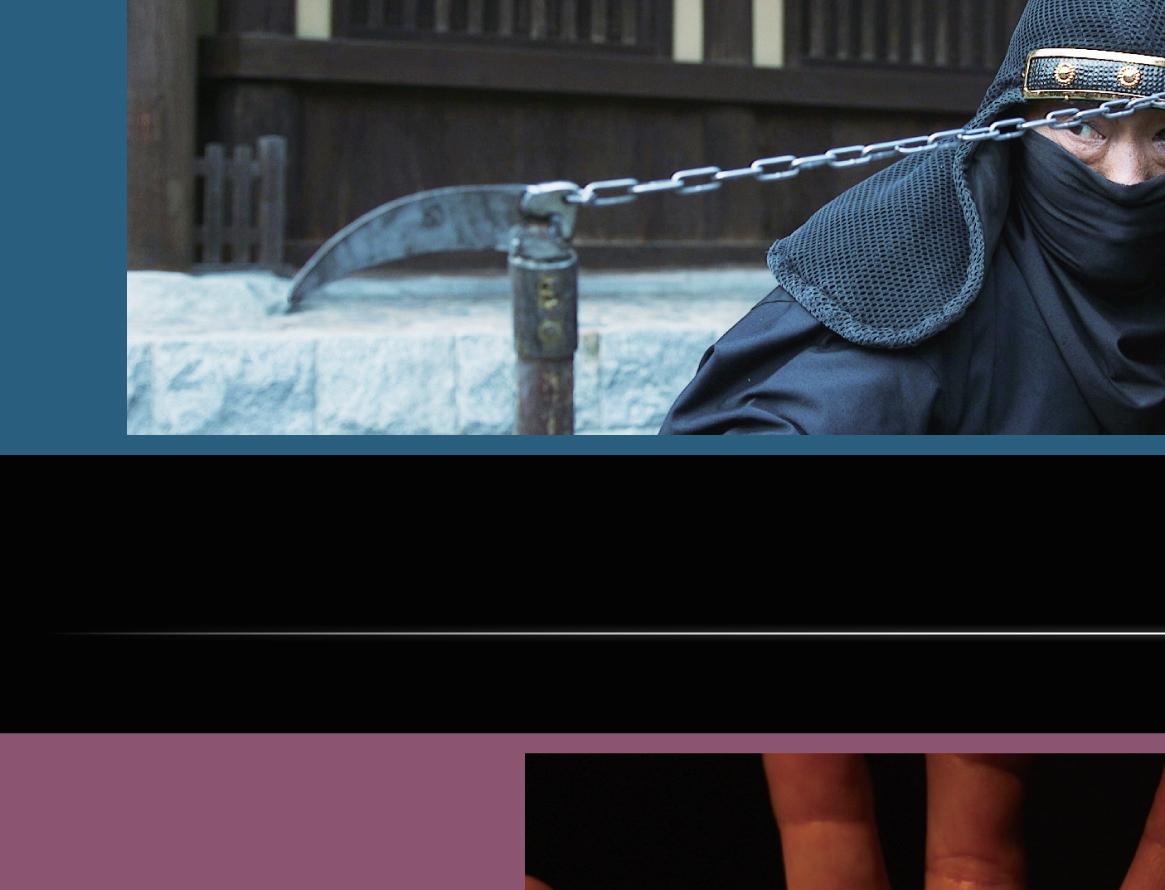







Iraq



Palin’s progress
British national treasure


Michael Palin is, as he points out multiple times during interviews, now 79 years old. Actually, for much of this one, he says he’s 78 before correcting himself at the end.
The Monty Python star has packed a lot in, and for the past three decades has become known and loved all over again for his BBC travelogues such as Full Circle, Pole to Pole and Around The World in 80 Days. Now, with Paramount-owned UK terrestrial Channel 5, he’s been setting out again, though not to the destinations you’d perhaps expect. Michael Palin on North Korea was such a success for the channel in 2018 that it’s sent him back on the road, this time in Michael Palin: Into Iraq. Dangerous places for a man half his age.
“Channel 5 seem to be quite keen on sending me places I might be killed,” he says. “As a 78-year-old. I’m not quite sure how much travelling I’ve got to do. I feel enormously privileged and grateful to have done as much travelling as I have over the last 35 years. An extraordinary amount of material, information, good times, interesting times, exciting times, an adventure. There is a certain point when you have to be a bit careful about what you do next.
“My wife is normally very supportive of my absences from home. The longer they are the quicker she agrees. She was very worried


Far from slowing down, Monty Python star Michael Palin is heading back out on the road for another travelogue – and following his adventures in North Korea for Channel 5, the UK terrestrial isn’t making things any easier for him with his latest destination.

 fol 5, h
By Clive Whittingham
fol 5, h
By Clive Whittingham
about me going to North Korea; the family were too. When I said we’re going to Iraq I think she felt somehow I hadn’t heard what she was saying about North Korea. She’s normally understanding of the travelling but this time was really worried. That’s reflective of the way North Korea and Iraq are seen.”


ITN Productions and distributed by Orange Smarty, meets an eclectic cast of locals.


“The people stay with me longer than the places,” Palin says. “That’s where you get your mind changed, prejudices shot to pieces and a vision of the world. I believe we should all talk to each other much more. If I can
discuss those issues eating food prepared by the women who are never seen, and who Palin is not allowed to thank, despite gently asking his hosts.
“We never got to meet them. It’s a significant moment,” he says. “The farmer and his son were extremely friendly but I never saw even a face at the window. They made this wonderful food, we asked if we could meet them – ‘yes.’ Then nothing happened. I don’t understand it.”
The question for TV, in the present climate, is how it looks sending an elderly white star to a place like Iraq to tell stories like that. Could they have sent a female presenter into what is still a dangerous country to challenge that? Or a local, younger male who doesn’t subscribe to those more traditional, devout views?





It’s worth mentioning also that between the two series, Palin has had open-heart surgery. “I’m about to see my surgeon for a third-year checkup,” he says. “He was the one who said ‘you can go anywhere,’ so he was keen, but the family were a little nervous.”
Amidst the check points, spectacular architecture and scenes of immense poverty and destruction caused by three decades of war, the latest three-parter, produced by
achieve that by meeting people on the journey that’s more important to me than the ancient monuments or modern cities, the people inside who live there and what they think about you and the rest of the world.”
On the subject of prejudice, in episode two of Into Iraq, Palin meets a farmer to discuss food supply problems caused by over-irrigation of the Tigris River, and is taken back to the family home where the men
“Everybody should be making programmes, younger people certainly. It shouldn’t be the province of any one group of people to do it,” he says. “It’s how you do it and the standard of what you produce. People have a go at older, white broadcasters but some of them are very good and do a bloody good job. They can teach and pass on what they’ve learnt to young people. But I think as many people as possible should be able to travel and make programmes that put forward their views of where they might want to go.”
So where next? “Probably the chemist,” he says.
THOUGHT LEADERSHIP:
“ The people stay with me longer than the places. That’s where you get your mind changed, prejudices shot to pieces and a vision of the world.
Michael Palin
Channel21 International | F Fall all 2 200222 22 2 Micichha a l el e Pal aliin n 97
Michael Palin:
Into
Smarter than
By Clive Whittingham
hen WaterBear was launched, in December 2020 by Off The Fence CEO Ellen Windemuth, as the Covid-19 pandemic was raging around the world, there was a degree of scepticism.



“People thought we were a bit mad,” says the streamer’s CEO Sam Sutaria. An ad-free, subscription-free streaming service focusing on the natural world and conservation, looking to make social impact – a nice idea, but was the business model viable?




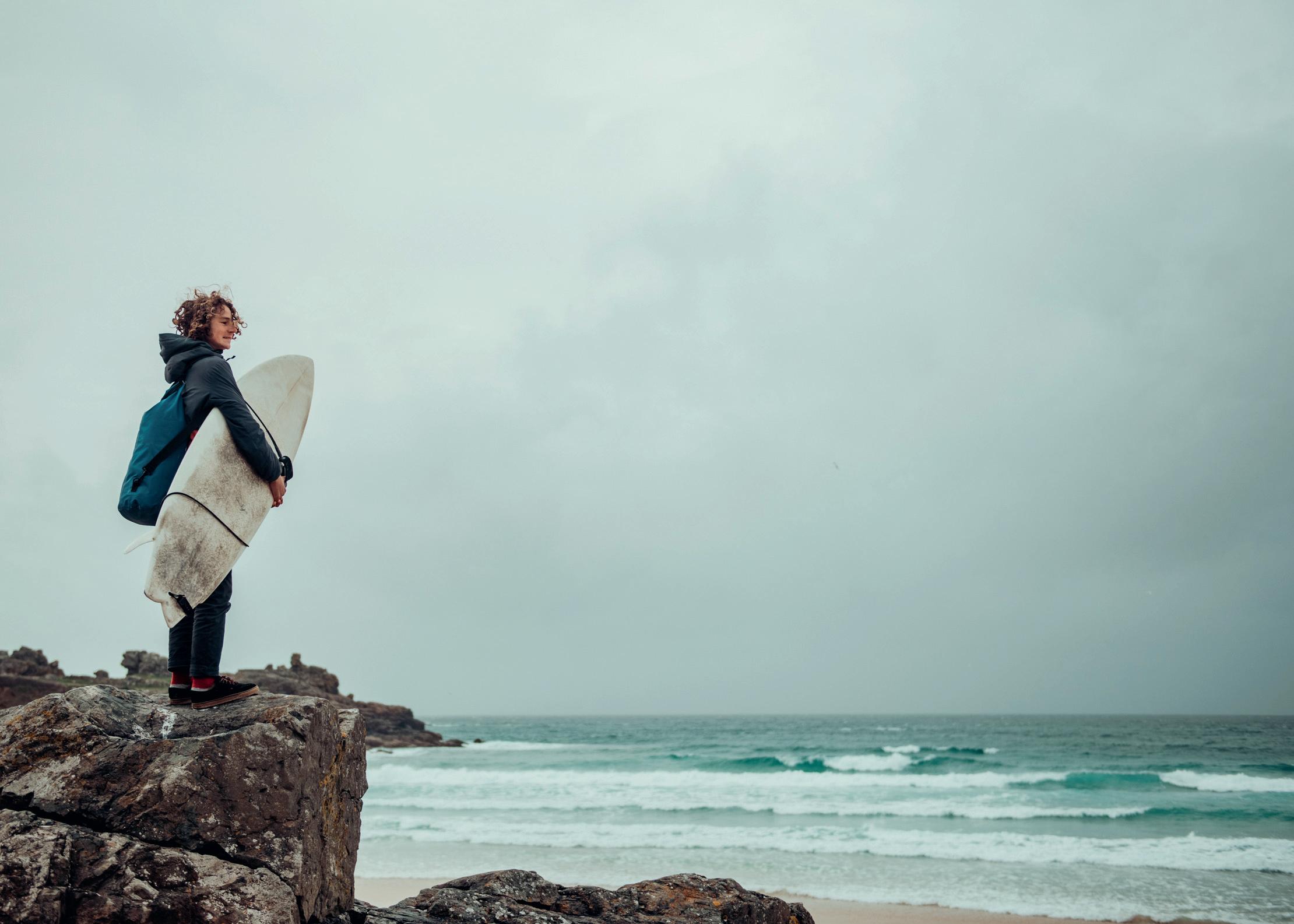
Now approaching its second birthday, the move looks

a good deal shrewder. Once dubbed ‘Netflix for nature,’ WaterBear is now finding economic strife around the world is sending consumers running a finger down bank statements and putting a line through luxuries like subscriptions to its vastly bigger and more talkedabout streaming rivals. SVoD services where the S is the only income stream are no longer industry and investor darlings, while AVoD and FAST (free, ad-supported TV) channels are having their moment.
start-ups. “We discussed a lot in the early days how we could futureproof the company and diversify revenue streams, as well as champion impact. We wrote a list called the ‘I Don’t Like’ list at the inception of the company. Ten things that annoyed us about the industry – including lack of transparency, greenwashing, having to pay for access to doing good, sitting through adverts that ruin a moment in a film that could have been the moment you took action. That list formed our business model. We built a business with those hard and fast rules and it’s so far, so good.”
WaterBear has a worthy mission. It wants to “bridge the knowledge and action gap,” making activists of its viewers, and it looks at real-world impact rather than traditional ratings as an indicator of its success. The company has a department dedicated to checking how much content like Slay and Milked, fashion and dairy industry exposés respectively, have “moved the needle” on social issues.
But there has to be revenue to keep the lights on, so how does WaterBear monetise its principals and pay the filmmakers who bring their unscripted content to the platform? Unlike SVoDs relying purely on subscriptions, the company has looked to solidify its future by having multiple revenue sources.





The first and main source is a form of the branded content model that has kicked around the industry for a long time. The aim is for brands to engage with WaterBear’s audience and enhance their green credentials in the process, more than they could through traditional advertising or branded content of their own. That provides the bulk of the revenue, with companies such as Rolex, Nikon, Jack Wolfskin, Ecology and Heineken among those already buying into this form of audience engagement through WaterBear.

More traditional distribution methods and revenue opportunities provided by different revenue-generating platforms are also working for the company, and WaterBear is exploring a tokenisation model and potential transactional schemes too.


“Through foresight, good planning, intuition, a lot of hard work and graft, we designed this model with that future in mind,” says Sutaria, who was part of the founding team, having trained at the BBC and worked in the world of shortform digital agencies and non-profit
Of course, there are brands and companies that want to be seen to be associated with such causes even if it runs counter to how they actually behave. Organisations have tied themselves in knots getting into bed with big business – for instance, London’s Science Museum not only taking sponsorship money from major polluter Shell as the principal sponsor of its Our Future Planet exhibition, but
An A add freee, su s bscripptionn-freree st streaming platf a orm r deddiccateed to coonservati t on o and natturee, Wat a er erBe B ar is thhri r ving as cheeaper sttreamming services start to ha have e theeir moment t in the sun during the ecconommic criisis
CONTENT STRATEGIES: WaterBear
Tide to Nature Dairy industry exposé Milked
the average bear

also signing NDAs forbidding it from speaking ill of the company and the negative impacts it has on the world. WaterBear, presumably, must have a higher bar than that?
“We’d like to think we’ve got one of the highest bars,” Sutaria says. “The concept of greenwashing is another pandemic in the world at the moment. Our vetting process, our selection criteria and due diligence are pretty extensive. We have an in-house tool called ‘the moral compass’ where everybody in the company, from an intern to the board, votes on the suitability of the brand partner, so we get a real cross section. Our team holds us to the highest standards of ethical and moral governance.
You haven’t seen anything like it. They’re our greatest stakeholder, so we really have to practice what we preach – so much so that we’ve turned down revenue already, which was tricky for the finance team, but we got there.
‘branded content’ that “we’re absolutely not here to create a corporate video for brands.”












































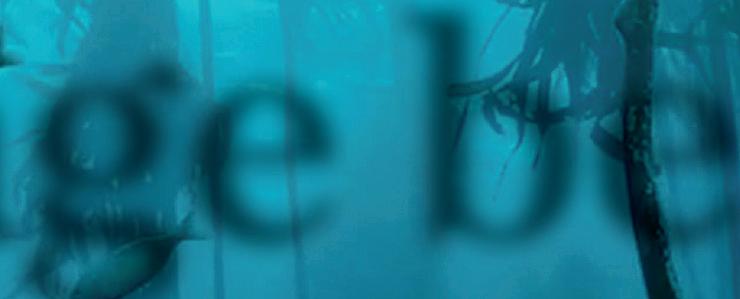

“We’ve seen a rise in agencies around the world being approached by a big oil company that wants to create a video around sustainability or circularity initiatives internally,” she says. “By doing that, they’re missing out on the science, the campaigns and the chance to connect with NGOs doing great work on the ground.
“What we’re trying to do with WaterBear and with these brands is a slate of 50 to 60 great documentary stories we want to tell about indigenous communities in the Amazon, or snow leopards, or gorillas in Rwanda, and aligning those stories with the missions of brands we’re talking to.
W


“Greenwashing is particularly prevalent when companies slap logos on things, sponsor something, get involved at a surface level. We all know brands and other stakeholders in the world are on a journey. We have a saying here called ‘progress not perfection,’ so it is a judgement call to choose to work with companies that want to come with us on the journey.
“Sometimes it comes down to looking the CEO in the eye and trusting that person and saying, ‘We know things aren’t perfect now but you’re on a journey and we’ll go with you.’ If you can report on the impact of the partnership doing something tangible in the world, that’s a much greater position to operate from than just slapping a logo on an exhibition and saying ‘we’re a green company.’ The whole brand is built on a very careful process around due diligence.”
Chief growth and impact offi Poppy Mason-Watts, who came to the business via a background with marketing agencies and a stint with Nat Geo in the Far East, works more across the content side of the business. She’s keen to point out at any mention of


arly when el. We all know so it is a work with th us on n to and d We but ith act hing uch than bition pany.’ a very ence.” officer ame to nd with with Nat e across ss. ntion of

“Essentially, we want the brands to fund the documentary stories to sit on the platforms. This film is made possible by Jack Wolfskin, but it’s not branded content in a traditional sense because the editorial integrity and credibility remains. It’s WaterBear creating lm with our production partners.” lmmakers, producers and distributors looking to get their content on the platform, Mason-Watts says it’s worth bearing in mind the editorial mission has shifted slightly over the last year: “We started off focused on climate, conservation and biodiversity because it’s the world we all knew pretty well. We can see the demand from consumers and members on the platform is for slightly different content in the broader spectrum across humanitarianism, diversity, mental health and gender equality. Sure, climate stories, but all of these things are interconnected now, so we’re broadening the scope of content we’re looking for.



content a s rem the film productio For filmmakers, produ worth ove
focused on climate, c because it’s the wor W de members on th different conte across human health an climate st are inte broaden we’re lo “I’d wants storie finish financ look at view. We’re now too. feature-len we’re look series
“I’d put a call out to anybody who wants to get in touch, has ideas or stories, finished product, or halffinished product that needs a bit of nancing, that we could potentially look at from a WaterBear point of view. We’re looking at different formats now too. Traditionally, we looked at feature-length and shortform docs, but we’re looking to move into docu-fiction and series.”

Channel21 International | Fall 2022 CONTENT STRATEGIES: WaterBear 99
Africa’s Hidden Seaforest
WaterBear founder
Ellen
Windemuth

zdf-studios.comR7.D 5 Meet us at MIPCOM stand no.
“My big dream is how can we make the Love Island generation care, and what content would achieve that? Is that docu-reality? Something different to bring that new audience group in,” Mason-Watts says. “We’re also looking to tap into existing communities around the world, who do care and are big fans of something, to see if we can get those into the platform. For instance, we’re looking for football and climate stories – how is climate change going to affect football in the coming years? How can we tap into the fashion industry and the huge fashion community globally?”
As part of a broadening out into series as opposed to one-offs, last year the platform launched The Breakdown, about the climate emergency, and Not A Pet, which focuses on keeping exotic animals as pets and changing the mentality around it. There are three or four more asyet-unnamed series to come, while shortform series are in demand for the company’s social media output. “We’ve got a huge community on social, allied to our members on the app, and a FAST channel and longer-form community, so we’re looking at how we can have a broad range of content that targets those different groups,” Mason-Watts notes.


WaterBear acquires and licenses completed and library content, such as Racing Extinction, a feature doc that launched in 2015 but hadn’t previously been available on a streamer. It also fully funds commissions, and everything in between, with coproduction opportunities for projects requiring bridging finance to get over the line. In addition, the company will be across numerous film festivals next year to see if they can provide a rich seam for content.




Issues created by windowing, exclusivity and rights are




on Sutaria’s ‘I Don’t Like’ list, so producers can expect a degree of flexibility. “We don’t like rights hoarding,” he says. “There is a business in that but we’re non-exclusive. We like the idea of curation, content sharing, collaboration – we’re a new-wave media company in that sense. If we are investing in something either to acquire or produce something, from a campaign perspective, we do like an exclusive first window to drive the impact and campaign. But after that, we’re very collaborative and like to share content and drive extra value to the filmmaker and the planet by collaborating with other platforms.
“We’re also interested in partnering with other media groups, getting involved in great campaigns and regularly contributing to other great communities in our space. We want a network of networks. It’s not about hoarding and owning too much.”
A ‘don’t want’ list feels more obvious for WaterBear than most channels and streamers. It’s pretty clear what sort of content won’t work here. But there are some specifics to avoid, particularly “non-charismatic experts.”
“It is something the doc space and branded content space has been plagued with for a long time,” Sutaria says. “Interviews and contributors who you could tag as a noncharismatic expert, the industry needs to move away from that.”



“I would just caveat that we also don’t have the budgets of the bigger platforms,” Mason-Watts adds. “We’ve had approaches for some wonderful feature docs that we’d have loved, but we just didn’t have the budget for.” There is, however, The Resilient Foundation, a parallel separate non-profit charitable arm to WaterBear that is working on a film funding mechanism that taps into philanthropic sources and hybrid funding models.
The network takes its name from a micro-animal that can live in all climates and terrain, can bring itself back to life using protein from its exoskeleton, having lain dormant for years, and is essentially indestructible. In the same week the company launched, news that actual water bears (the colloquial name for tardigrades) had been found on the moon made headlines around the world – “my friends got in touch asking how big our PR budget was,” Sutaria laughs.

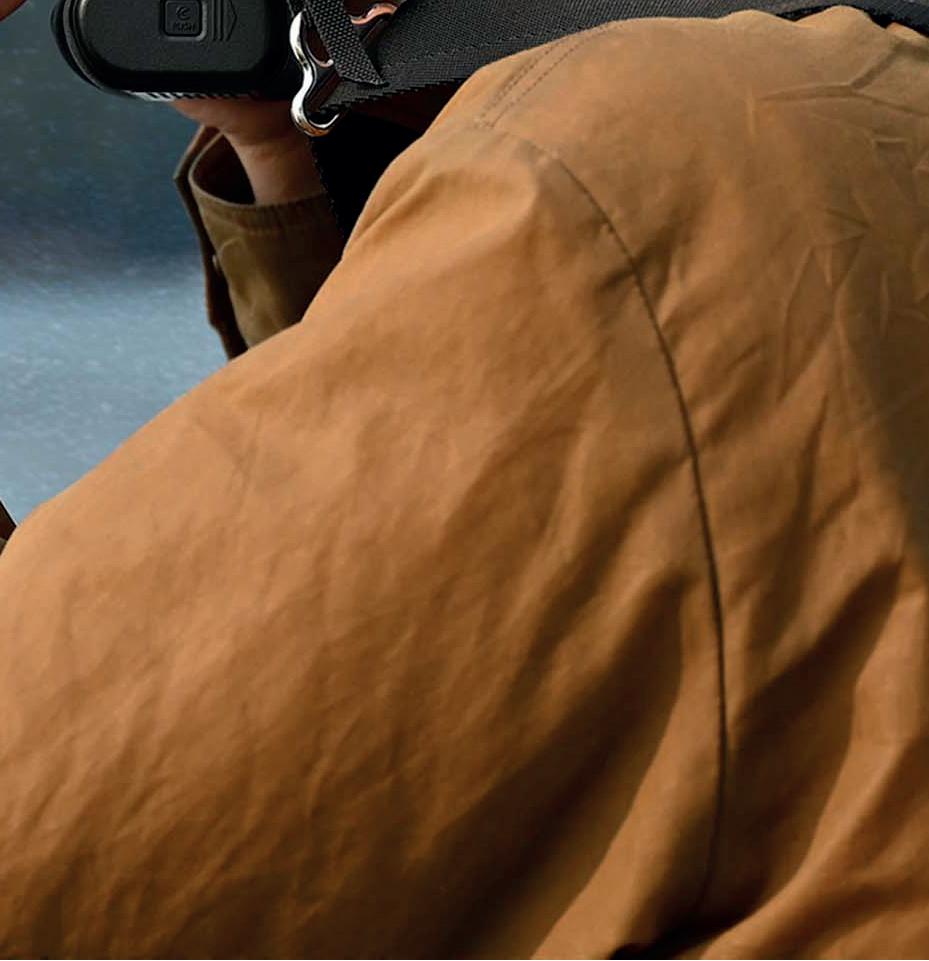

WaterBear has come through enough already to suggest the micro-animal might be a very apt mascot indeed.

CONTENT STRATEGIES:
Sam Sutaria and Poppy Mason-Watts
WaterBear’s library includes LGBTQ+ documentary Together We Dance; Tide to Nature, about 15-year-old Oliver Riley’s love for surfing and photography; Africa’s Hidden Seaforest; and A Lens on the World.
Channel21 International | Fall 2022 STRATEEGGIIESES: WatatererBeBear ar 10 101
“
The concept of greenwashing is another pandemic in the world at the moment. Our vetting process, our selection criteria and due diligence are pretty extensive.
Sam Sutaria
A Lens on the World
Slay focuses on the fashion industry












In 2014, French weather presenter Évelyne Dhéliat put up a hypothetical map for her viewers showing the sort of extreme temperatures her country would face by 2050 thanks to global warming. It said France would face August temperatures in excess of 43ºC and this August, just eight years later – 28 years early – it came true.
It has already been a year of record floods in Australia and Pakistan, a killer heatwave in China and excoriating temperatures across Europe and California that have caused crop failure, drought and major rivers to dry up entirely. Increasingly, this is the day-to-day reality we’re living with in our cities. London baked in 44ºC of heat earlier this summer, with wildfires breaking out across the city.
Politically, however, there still seems little appetite to do anything serious about it – particularly with the war in Ukraine sending natural gas prices through the roof and Europe scurrying back to coal and anything else it can lay its hands on to heat homes and provide affordable heating and electricity this winter. It’s common for sceptics to downplay the whole thing, attack the ‘green lobby,’ deny there’s a problem at all and say that the Earth’s climate has always changed.
Natural history filmmakers have been on the frontline of this for generations, seeing the damage and changes first hand, but until a decade ago woe betide them for actually mentioning it in their programmes.
Spreading the C word
glo bro vie
hooks, suspense and uncertainties. There are a lot of devices that storytellers and writers have used for years, and that’s the way you get to a mass audience. The moment you make it ‘pointy’ and polemic you start off with a much smaller audience.
rst Planet Earth a decade ago, conservation was
Chadden Hunter, wildlife filmmaker and exec producer at Australia’s WildBear Entertainment, previously made big-budget David Attenborough series for the BBC. He says: “When we made the first Planet Earth a decade ago, conservation was called the ‘C word’ and you wouldn’t get one

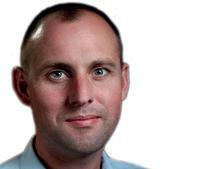
word of it in those big series. Now, across all the big broadcasters – Disney, Nat Geo, BBC, Netflix – not one of them would do a big natural history series without conservation, sustainability and climate woven into the fabric of their big offerings. That’s fantastic, and refreshing.”
The challenge now is bringing this important message to a broad audience without alienating viewers or making television’s Sunday primetime staple genre feel like hectoring homework.
For Hunter, it’s about borrowing
storytelling devices from other genres, making it about a person or animal’s mission or struggle, to hook viewers in WildBear was behind recent feature doc Playing with Sharks: The Valerie Taylor Story, for example.



“We’re living in an era of conspiracy theories and an insanely wide selection of media of disrepute and fact-bending. It’s hard to compete with that. You could bang your head against a wall. We’ve all got friends and family members who may see it a different way. You can waste a lot of energy trying to convince somebody who’s holding on to a conspiracy theory or not wanting to listen to science. I would focus much more on the big players who make a
focus much more on the who make a difference, the governments and corporations. A lot more in our filmmaking, we’re working alongside them to enact decisions that save the planet. There will always be people out on the street you’re
“You a nuance
“You do it with a little bit of nuance and stealth,” Hunter says. “We sometimes call it the Trojan Horse methodology. I would

never start off pitching a film called Climate Crisis or Deforestation because you’ve lost 75% of the viewers up front. What audiences and humans in general respond to is great storytelling – that’s the way in. You’ve got to have intrigue,
The














 After a year of extreme weather and stark warnings about the global climate crisis, how are natural history filmmakers and broadcasters getting the message across without alienating viewers? By Clive Whittingham
After a year of extreme weather and stark warnings about the global climate crisis, how are natural history filmmakers and broadcasters getting the message across without alienating viewers? By Clive Whittingham
Channel21 International | Fall 2022 AHEAD OF THE CURVE: Natural history 103
“
You can waste a lot of energy trying to convince somebody who’s holding on to a conspiracy theory. I would focus much more on the big players who make a difference, the governments and corporations.
Chadden Hunter WildBear Entertainment
Love Nature’s Planet Shark
not going to convince one way or another but you’re going to waste a lot of breath trying to do that one by one.”
The points about using storytelling devices from other genres and targeting decision-makers who matter rather than trying to convert conspiracy theorists one by one are echoed by veteran filmmaker Keith Scholey.
He also worked on BBC series such as Planet Earth – the second season of which brought in one of the movie world’s most famous composers, Hans Zimmer, to do the score and lift the storytelling –before setting up Silverback Films, which is now backed by All3Media and working on Wild Isles, a new Attenborough series for BBC One.
“You have to say, ‘Come on everyone, look at the evidence outside your door, look at the news you see every day,’” Scholey says. “The predictions scientists made 20 years ago are more than coming true, and actually it’s happening faster. The problem is staring everybody in the face.
“At Cop26 [the United Nations Climate Change Conference], there were some crucial things changed which I think put the world on a different trajectory, but it was largely businesses getting it and changing. Business has changed beyond all recognition on climate change in the past 10 years. It’s a complete flip and you can’t underestimate how important that will be. Governments are now way behind business.
“Have we changed electorates so that they really push for politicians? No, I don’t think we have. Clearly there is a bigger job to do in communicating these facts. It boils down to what we tried to do with Our Planet – you have to reach a big audience, not preach to the converted, and then you’ve got to tell these stories in interesting ways. The crucial thing is you have to show a way out of this thing. If you don’t show that, then humans, by their nature, get very depressed. You can’t leave people in a place of hopelessness.”
Martha Holmes is chief creative officer for natural history at Plimsoll Productions, in which ITV Studios recently bought a majority stake, and is a former veteran of the BBC’s Natural History Unit. Plimsoll’s most recent series, Super/Natural for Disney+, is a deep dive into the extraordinary abilities of animals that we, as humans, cannot see, smell or hear.
“Audiences continue to want to engage on an emotional level and be taken through a riveting story rather than be lectured, so finding a story arc that takes you across the series rather than just through a programme is increasingly important, particularly for the SVoDs. And young audiences, rightly, care enormously about the environment
and our programmes cannot afford to ignore this issue,” Holmes says. “We need to keep innovating in our storytelling to make this vitally important issue palatable to audiences. The short answer is by engaging audiences through entertaining them and dealing with the subject in a compelling rather than didactic way.
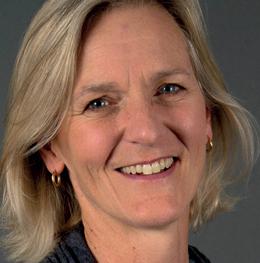
“Covid-19 travel restrictions forced us to find incountry talent and we worked hard with up-andcoming producers and cinematographers. Those relationships are now secure and we are still working with people around the world who we didn’t even know about three years ago. It has been a fantastic moment for our industry and we will continue to work with local talent where we can.”
Carlyn Staudt, global general manager of Blue Ant Media’s Washington-based Love Nature channel, echoes the importance of optimism when trying to keep viewers engaged with the message. The network was behind conservation series Orangutan Jungle School, Evolution Earth, Malawi Wildlife Rescue and Planet Shark and has further series in the ‘saving the planet’ genre that Staudt is excited to present to viewers.
“It’s virtually impossible not to include a climate message in our programming. Everything in the
natural world is responding to climate change,” she says. “We’re always trying to find ways to speak to younger audiences because the next generation is passionate about educating themselves on the topic and they want programmes that speak to them.

“There are three ways we’ve found success with broaching this topic. One is featuring stories of individual animals. Thinking and caring about a specific individual animal character makes thinking about stories of climate change much more personal, intimate and impactful. We did this with After The Wild Fires and we’ll do it with Evolution Earth, which we have coming up as well.
“The second is finding new storytelling devices. In Evolution Earth, we’ll explore a conversational podcast narration that invites the viewers into the discussion in a more poignant way.
“Thirdly, we need to be constantly conveying hope and optimism into the topic. Evolution Earth will highlight nature’s ability to adapt, change and be resilient. After The Wildfires, which we did last year, showcased the frontline workers in the aftermath of the devastating fires in Australia, but it also showcased the growth that came after.”

That idea of using individual stories of animals and/ or humans as a dramatic hook to hold the audience has rarely been better exemplified than in Oscarwinning doc My Octopus Teacher, which brought streamer The WaterBear Network and producer/ distributor Off The Fence (OTF) to international attention. OTF is also collaborating with the Jane Goodall Institute on a second season of Rescued Chimpanzees of the Congo for ZDF Studios.
Andrew Zikking, MD of production at OTF, said: “There’s definitely a greater appetite for using wildlife slots to celebrate nature and highlight the impact of the climate crisis — and every other crisis facing the planet. While using A-list talent to bring these issues to a wider audience has been successful, in terms of impact, it’s the films that arrive from leftfield and deliver a conservation message within an incredible story that create the greatest ripple effect.
“ Audiences continue to want to engage on an emotional level and be taken through a riveting story rather than be lectured, so finding a story arc that takes you across the series rather than just through a programme is increasingly important.
Martha Holmes Plimsoll Productions
Left: An upcoming project from WildBear about the platypus. Right: Evolve looks at the emerging area of biomimicry
AHEAD OF THE CURVE: Natural history Channel21 International | Fall 2022104

“A great example of that was My Octopus Teacher, which won us an Oscar in 2021. Another is The Letter, which we’re making in conjunction with YouTube Originals. The 90-minute documentary looks at Pope Francis’s second encyclical, in which he calls for the people of the world to take “swift and unified action” against global warming. With extraordinary access to Pope Francis – who has done more to fight the climate emergency than any other leader on the planet – the film tells the stories of people from around the globe whose everyday lives have already been impacted by global warming. It’s not only a wake-up call but a humbling reminder of our responsibility to come together in solidarity for the greater good of one another and our planet.”
Doug Mackay-Hope is senior VP of development and production at Bristol-based natural history producer Wildstar Films. It works on a host of series for Disney+/Nat Geo including Queens, The Epic Adventures of Bertie Gregory, America’s National Parks, Sentient with Darren Aronofsky’s Protozoa Pictures and America The Beautiful

He describes selling to a broad audience as a challenge but does see hope and change. “This is a tough one – because there is not a single person that I have met in our industry who doesn’t care about this more than anything. It’s present in everything we do and see,” Mackay-Hope says.
“The trouble is, natural history is often watched as an escape, a way for our audiences to run away mentally, to see amazing places and witness incredible behaviours and stories. Historically, that is what our audiences have always wanted, but as filmmakers we all know how fragile the reality is. I do think it has changed though. Gone are the days when we would just address these issues at the end of the show, almost as an embarrassed afterthought. It is now much more often at the centre of the storytelling and our commissioners support and appreciate this. But we can always do more.”
Paul Wooding, MD of the Bristol-based Woodcut West arm of UK indie Woodcut Media, has a yetto-be-announced observational doc in development, working with teams that are trying to save endangered wildlife from infections brought to some islands by pets.


“There is so much more engaging content that smuggles important messages and communicates a bigger picture of the natural world,” he says. “Dramatic storytelling must be at the forefront and the impact of climate change affects all species. As global warming continues to affect the planet’s entire


eco-system, with it will emerge a new era of dramatic storylines that can carry important messages.
“New, accessible technology enables more programme makers to access wildlife around the world and helps filmmakers capture material remotely – reducing the burden that natural history programme makers put on the planet we care so much about.”
While the UK city of Bristol remains the natural history filmmaking capital of the world, where a whole host of firms have grown up around the BBC Natural History Unit, the influx of streamers into the genre has made it attractive for people building prodcos all over the world. In the US, co-founders Ari Mark and Phil Lott have made natural history a key part of their Ample Entertainment business and are currently working on Kangaroo Valley for Netflix.
“When we launched the first US-based natural history division two years ago, we identified three areas that felt worthy of a fresh take: big budget blue-chip big swing, often with A-list auspices; lower budget ongoing series, often talent-led with a twist

and commercial hook; and pro-social conservationminded content for a broad audience,” says Mark.



“I heard a BBC radio spoof trailer recently for David Attenborough’s supposedly forthcoming series I Told You So, but short of that actually becoming real, I think we’ll all have to continue to work hard to find ways to organically weave it through all our series, but in ways that are actionable and forward-thinking,” says Lott.
“For a while natural history shows cut to the stock shot of a tail-pipe and a mum behind the wheel of a family car, underscored with doom music – but at some point I think the audience are going to feel victimised and powerless. After all, they’re watching our shows to take a break from the horrors on the news and on their social media feeds. So I think we’re going to continue to see a far greater emphasis on highlighting the latest technology, thinking and practice that promise practical, positive changes in how we live,” Mark adds.
On the distribution side of the business, Hana Palmer is head of sales at London-based Abacus Media Rights, which is currently shopping Life In Colour With David Attenborough and another 6x60’ series titled Evolve which looks at the emerging world of biomimicry and whether the unique adaptations of the animal world can help us find solutions to some of our biggest problems.

Palmer echoes the importance of showing the viewers a way out of the situation, rather than weighing them down. “People are looking for more positivity. And future-looking content, optimistic ideas and solutions as opposed to just doom and gloom stories,” she says. “It’s a really shocking and pressing issue but viewers want to find answers and understand how they can help themselves. It’s about empowering people to work together to solve these issues. Younger audiences are particularly focused on this as the climate crisis will have a more serious effect on them – they have to be part of the solution.”
If it’s frustrating for you hearing climate change denial in mainstream politics and media, imagine the frustration of people who have worked reporting the natural world for their whole careers. They are filming environments changing, disintegrating and dying before their eyes, in real time.
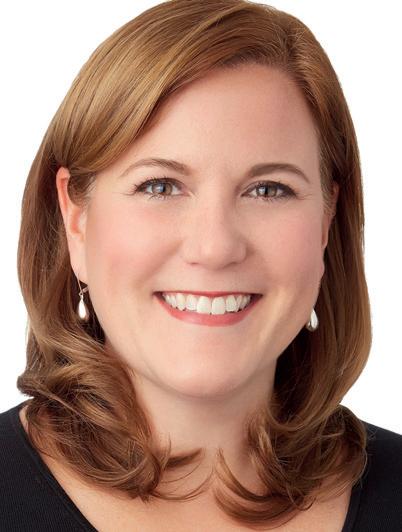
Keith Scholey has filmed more than most, and some of what he has witnessed has left him dejected. “I’m especially passionate about the oceans which are being completely wrecked, largely by industrial fishing,” he says. “People talk about plastic but the big thing that’s wrecking it is industrial fishing, and it could be fixed overnight. It’s legislation. I despair because it’s the biggest carbon sump in the world – if you just stop bottom-trawling the ocean, that accounts for all the emissions of aviation. It’s on that scale. Everybody worried about air miles and flying in a plane, just stop bottom-trawling. Look how much money it makes – nothing, as most of it is subsidised.

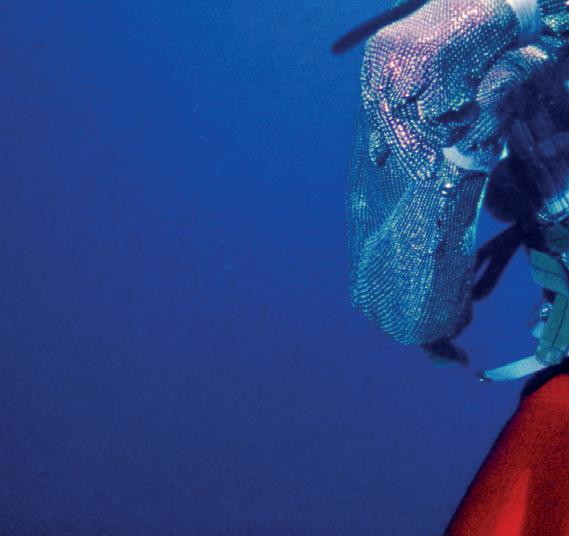

“The bit that makes me mad is the inconsistency. We’re in war and at present we’re arming the enemy and destroying our defences. You won’t win a war that way. Starve the enemy and build defences is how you win. That’s where I despair. Look at the whole thing logically – it’s so straightforward and not particularly painful.”
 Above: WildBear’s Playing with Sharks: The Valerie Taylor Story focused on one woman’s conservation efforts. Right: Love Nature’s Malawi Wildlife Rescue
Clockwise from top left: Ari Mark, Carlyn Staudt, Paul Wooding and Hana Palmer
Above: WildBear’s Playing with Sharks: The Valerie Taylor Story focused on one woman’s conservation efforts. Right: Love Nature’s Malawi Wildlife Rescue
Clockwise from top left: Ari Mark, Carlyn Staudt, Paul Wooding and Hana Palmer
AHEAD OF THE CURVE: Channel21 International | Fall 2022AHEAD Natural history106






























Welsh indie Yeti is aiming to avoid the sensationalist tropes of ‘horror porn’ in true crime as it grows its slate of series and one-offs following a recent move into the genre.
By Olivia Atkins
Cardiff-based Yeti moved into true crime with its first commission for CBS Reality, The Truth About My Murder, building on its experience making specialist factual shows such as The Great Big Tiny Design Challenge for Channel 4, Charles: 50 Years a Prince for ITV and The Asian Welsh for BBC One Wales.

The indie, set up in 2014 and part of Rondo Media Group, produces TV programmes across various genres, spanning arts and history, documentaries, features and factual entertainment. Its foray into true crime comes as audience interest in the genre refuses to wane and streamers commission show after show exploring the dark side of humanity.
Sarah Stevenson, head of development at Yeti, has previous experience in true crime programming, which has proved useful when fleshing out the company’s exploration of the genre as it hunts returnable formats.

“Some people think moving into a new genre that we haven’t done before is risky, but for us, we don’t see it necessarily as new,” she says. “It’s another kind of specialist factual genre, which at its core is the same as all of our other programmes. It’s about how we package that specialist factual content to sit in sync with our shows and make it more accessible to viewers.”
Having noticed that most people tend to associate true crime narratives with murder and retrospective cases, full of sensationalist stories and lacking in expertise, Yeti wanted to provide a more ethically investigative approach.
“Often with true crime, there is a temptation to sensationalise; everyone loves a headline, and it’s how we sell a lot of the things that we do in TV,” says
The Truth About My Murder
Development slate
Yeti Television
Stevenson. “But it has a time and a place – and it probably isn’t in true crime. The sensationalism can be disrespectful to victims. We wanted to avoid that.”

Where possible, this has meant involving the victim’s families to support the development of the story and its narrative, as a way to raise awareness of their cases or to have it investigated further.
“We tend to work directly with the victim’s families,” adds Stevenson. “They’re often the ones pushing for
they didn’t want to make anything like that. We want to create shows that get people hooked into playing armchair detective, fascinated to find out more without the need for being too explicit.
“Not necessarily all of the ideas we have in development are forensic but they’re all investigative. We are looking at true crime cases that aren’t just murder-centric; they could tackle scams, the effects of social media, or coercive control. We want to broaden that world of true crime.”
Some people think moving into a new genre that we haven’t done before is risky, but for us, we don’t see it necessarily as new. It’s another kind of specialist factual genre.
“
 Sarah Stevenson
Sarah Stevenson
Yeti TV
their cases to be heard or want more information to emerge.”
Yeti is keen to avoid sensationalism and provide less graphic and gory content as a way to distinguish itself from many other doc makers in the market. It’s an approach Yeti will pursue across future productions and developments, says Stevenson, who joined the company in 2020.
“There are a lot of ‘horror porn’ docs out there, and they have their place,” says Stevenson. “Some people enjoy that but that wasn’t what we wanted to make. Some of my team are a bit squeamish so
With a number of already commissioned but as-yetunannounced true crime docuseries under its belt and two feature docs about a range of subjects, Yeti’s slate continues to grow following investment in the company from commercially funded public service broadcaster Channel 4 in 2020 via its Indie Growth Fund.
“We’re making something for Sky Arts about [writer and comedian] Spike Milligan with incredible archives and a big feature doc for Red Bull about a famous female athlete,” Stevenson reveals. “They’re from two very different worlds and show the range of things we make. We’ve got some projects for Channel 4 that will be officially announced shortly and a CBBC doc that we’re making. We’re finding our voice within these genres to make specialist factual content more accessible and entertaining.”
BACKEND Channel21 International | Fall 2022108


















































































































 fol 5, h
By Clive Whittingham
fol 5, h
By Clive Whittingham



























































































































 Above: WildBear’s Playing with Sharks: The Valerie Taylor Story focused on one woman’s conservation efforts. Right: Love Nature’s Malawi Wildlife Rescue
Clockwise from top left: Ari Mark, Carlyn Staudt, Paul Wooding and Hana Palmer
Above: WildBear’s Playing with Sharks: The Valerie Taylor Story focused on one woman’s conservation efforts. Right: Love Nature’s Malawi Wildlife Rescue
Clockwise from top left: Ari Mark, Carlyn Staudt, Paul Wooding and Hana Palmer





























 Sarah Stevenson
Sarah Stevenson